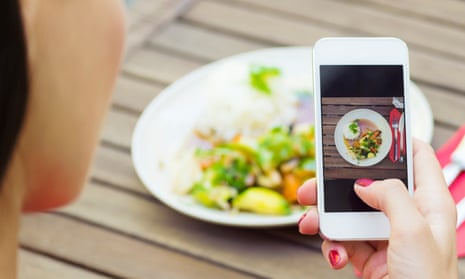“How do you know if someone is vegan? Don’t worry – they’ll tell you.” It’s an old joke, but it’s still doing the rounds. And now that we’re more than three weeks into Veganuary, there’s no getting away from veganism. I became a convert myself just over a year ago with the help of 2017’s Veganuary campaign.
Oh, look. Just a few lines in and I’ve managed to tell you I’m a vegan.
I have to say, when I first heard this joke, I was mildly amused and slightly embarrassed, probably because I am one of those annoying vegans who seem to use the word vegan in every sentence. See? I just did it again! My partner isn’t vegan but he’s kind enough to try all of my new recipes, and eats mainly plant-based foods at home. He has the patience of a saint, but even he has cracked the odd joke about my inability to talk about anything else. I am very lucky to have friends and family who are either vegan or vegetarian, or just interested in what I have to say on the matter. But it got me thinking about why vegans feel the need to tell the world.
I think the first realisation you have when you become vegan is just how exciting it is. Rather than finding yourself limited to a restrictive diet, which is the expectation of most new vegans, a whole new world of food and a new way of cooking are opened up to you. You start experimenting with ingredients you’ve never used before, or sometimes never even heard of, like nooch or seitan, with amazing culinary results (some of the time), and you want everybody to taste what you’ve tasted. If you’ve been a hardened cheese addict for most of your life, like I was, of course you want your family to try the latest plant-based cheese that melts just like mozzarella!
You can also find yourself feeling much more energetic and enthusiastic after the switch to a plant-based diet. I think this is in part because of the amount of healthy nutrients you’re getting on a daily basis; my fruit and veg intake has more than doubled. But for those who have become vegan for the animal rights side of things, every meal is guilt-free and eating almost becomes an exercise in mindfulness, leaving you with positive feelings. Who wouldn’t want their friends and family to feel this too?
Most new vegans will join an online group or two; there are plenty to choose from, and Veganuary even has its own Facebook page. The sense of belonging can be invigorating, but it can also blind you to the fact that most of the people around you know very little about the vegan lifestyle, and at worst, have no or little interest.
But there is a more serious aspect to vegans shouting about their lifestyle for what feels like 24 hours a day. Although it has become trendy to “eat clean”, and a plant-based diet is often viewed as clean, veganism’s roots are deeply embedded in the world of animal rights activism.
Many people are unaware of the cruelty with which their meat, cheese and leather items are produced, whereas others have had fleeting glimpses and choose to ignore it. I was brought up vegetarian for most of my life, but it took 15 years after my mother went dairy-free and gave me explicit explanations of why she had done so before I opened my eyes to the brutality of the dairy and egg industries. I knew what happened on dairy farms: that female cows spend their lives being artificially inseminated, only to have their calves taken from them at birth; that those calves are usually slaughtered for veal while their mothers spend their lives attached to machines draining the milk that was intended for their lost babies. But still I chose to ignore it. Once you open your eyes and have that lightbulb moment, it’s hard to watch the rest of the world tucking into their cheese plates and burgers without feeling you should say something.
I often think that if I just told that friend how their omelette ended up on their plate, or that stranger in the fur coat how the mink or coyote that had worn it before had suffered, perhaps they’d reconsider. Maybe I could get them to see the world like I now see it, and, just maybe, veganism could become the norm, rather than the radical.
When I talk about veganism to my friends and family, it’s usually in the context of a new project I’m working on, or a great new product I want to share. I’m not one for interfering in people’s choices, although I always encourage people to ask me questions and find out more about why I’m vegan (and how great it is). But in a vegan’s ideal world, slaughter and unnecessary pain would no longer exist – and when you know there is a more compassionate alternative, it’s hard not to mention it once or twice.
